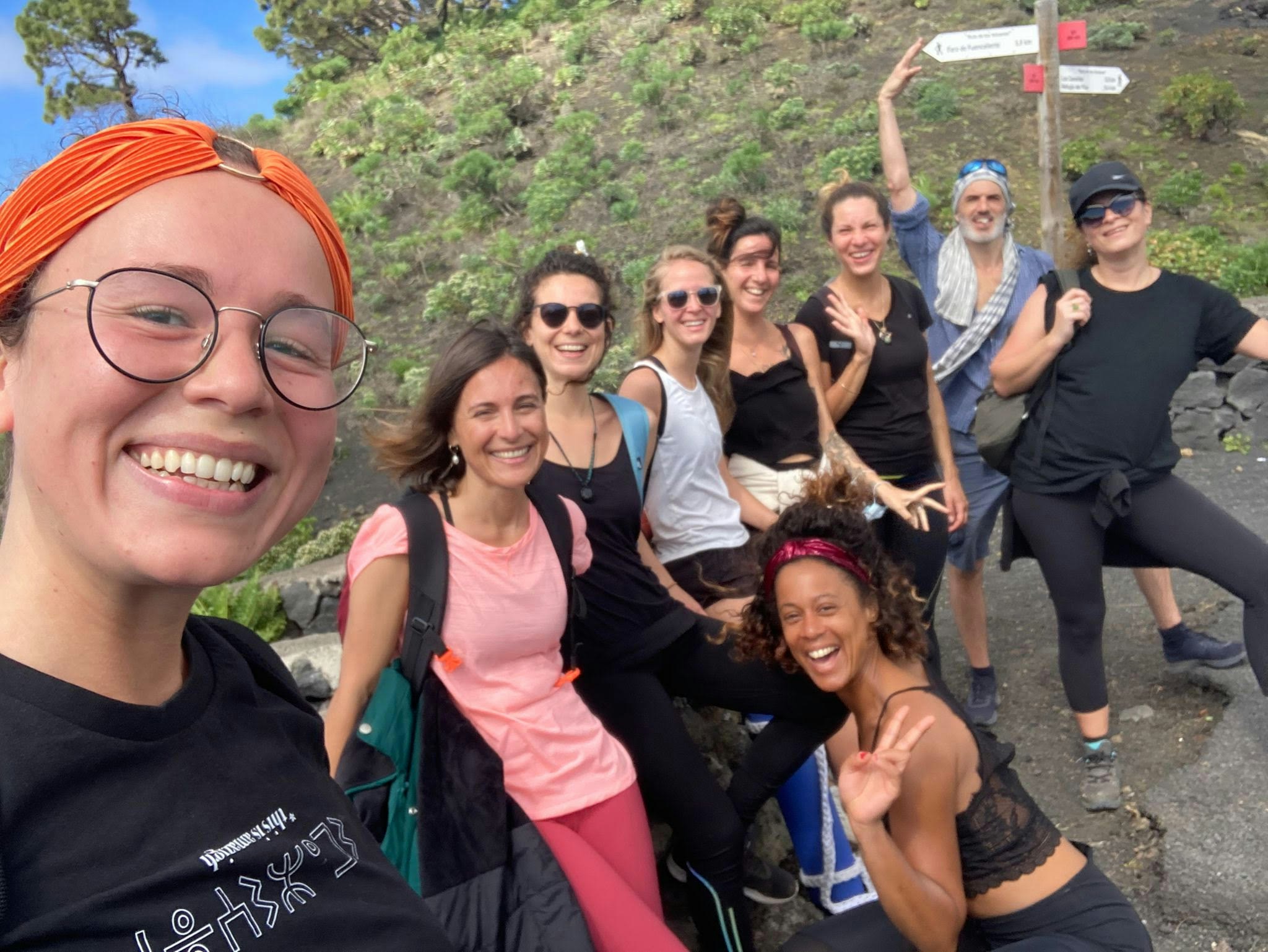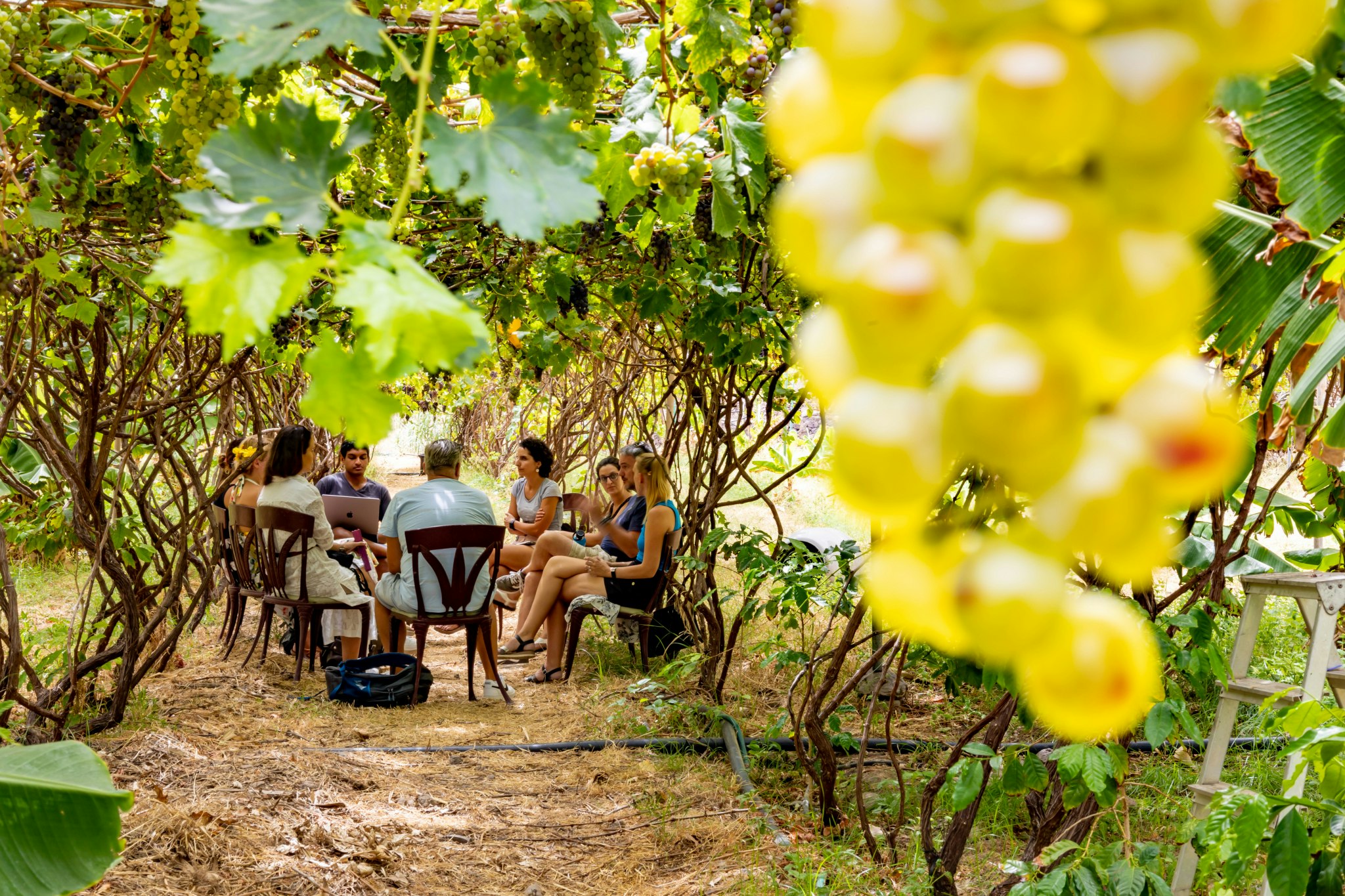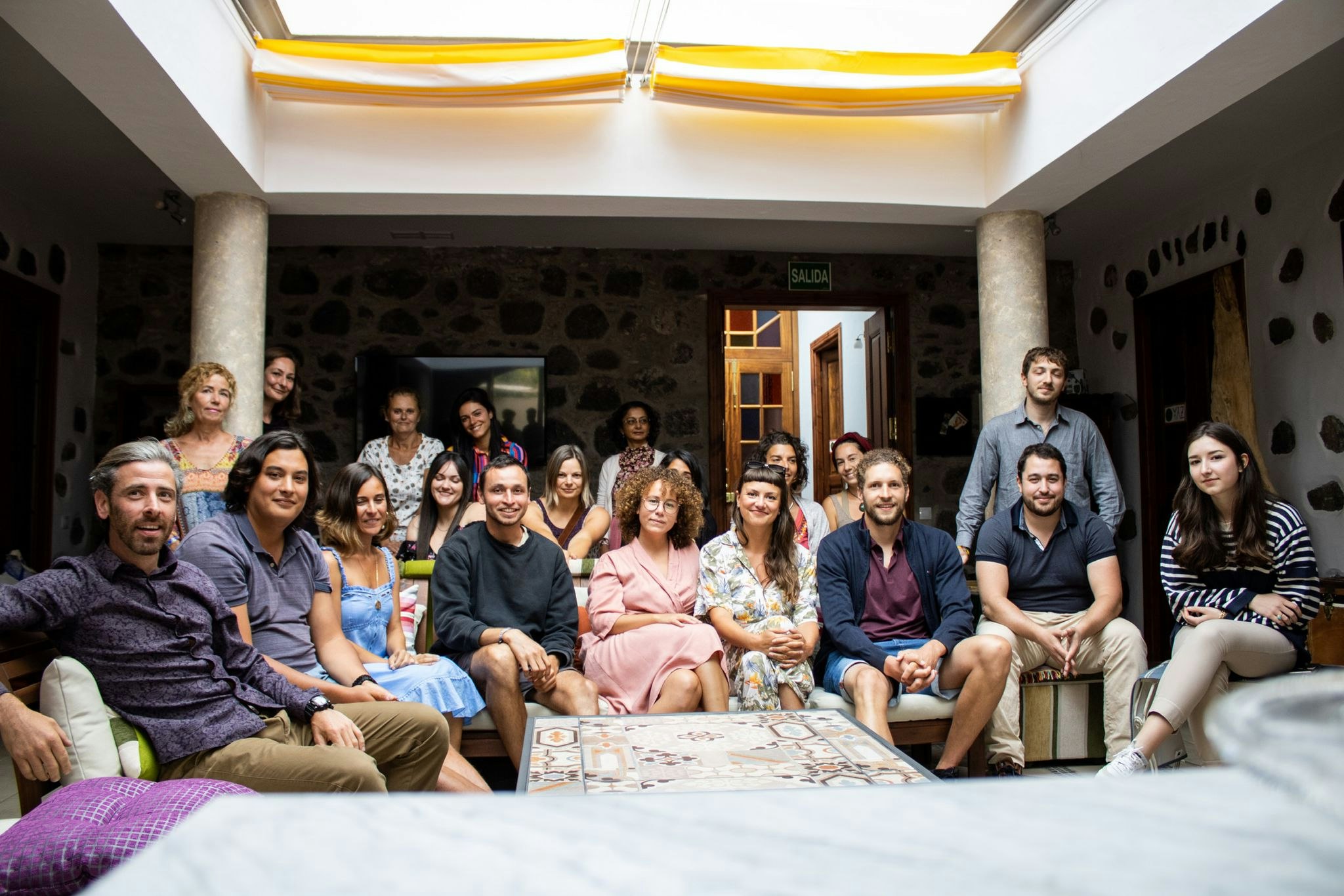Between 2020 and 2023, Sonia Amroun spent four months of the year as a digital nomad in La Palma, one of Spain’s Canary Islands, where she ran co-living retreats for solo entrepreneurs.
But after posting a video online highlighting one of her projects, she received more than 400 “bullying” messages from locals telling her to leave.
“I’m North African myself and I started to receive messages saying I was a coloniser. That was totally crazy,” she tells Sifted. “I felt I was not in the right place; I’m not doing the right thing. If those people think that [about me], there is something wrong.” Amroun left the island in April and doesn’t plan to go back this year.
Tensions have been growing between locals and digital nomads in the Canary Islands over the last few years, Amroun says, as locals feel they are competing with newcomers for housing and that their communities are being eroded by luxury hotels for tourists. In April this year, 50k people took to the streets across the islands to protest against the negative effects of mass tourism.
Protests in Spain have also broken out this month in Barcelona, Ibiza, Malaga and Menorca. And in neighbouring Portugal, rising prices and a lack of available housing have led to backlash from locals in Lisbon who are weary of remote workers and tourist groups.
People will always travel — and some countries and regions rely on foreign visitors for income — but remote work experts tell Sifted that the opposition from locals provides an opportunity for governments to bring in a more sustainable approach to tourism, with digital nomads who actually give back to local communities a part of that solution.
Mass tourism and “fake nomads”
Tourism in the Canary Islands has boomed since the Covid pandemic: a record 16.2m visitors arrived in 2023; visitor numbers in 2024 are expected to break that record again.
With increased visitor numbers has come a spike in accommodation prices, meaning some residents are unable to afford to rent or buy homes. In the south of Tenerife, local media reports that communities of people in makeshift homes, caravans and cabins are growing because of a lack of affordable housing.
“The cost of living crisis is unbearable for locals. I understand why they are fed up,” says Amroun.
It’s a similar story elsewhere. Residents in Barcelona took to the streets last month armed with water pistols to protest against rising living costs — rents have increased 68% in the past 10 years; the price of buying a house is up 28% — and a decline in the quality of life for local people as a result of mass tourism.
Spanish authorities have taken strict measures this year to curb visitor numbers. In April, the government abolished its Golden Visa programme, which granted visas to wealthy foreigners if they purchased property for €500k or more. In June, Barcelona announced a citywide ban on short-term rentals by 2029; this week, a new plan to raise the tourist tax for stopover cruises was also unveiled.
Nomads are seen as part of the problem — with some being targeted online. But, according to Amroun, most remote workers who travel abroad want to experience and learn from other cultures, and the negative image actually comes from a subgroup that she calls “fake nomads”. “They make a lot of money and then live like kings and queens for under €20k a year, in countries where €20k is a lot. They’re not creating [socially-beneficial] projects or trying to connect with locals,” she says.

“Nomads are pushed in the news for causing huge problems, but compared to tourists, they are a small minority,” says Nacho Rodriguez, who grew up in Gran Canaria and has been running a consultancy for remote workers offering accommodation, workspaces and company retreats for the last decade.
Across the eight Canary Islands, for instance, 80k digital nomads arrived in 2023, compared to 16.2m tourists, according to statistics from the tourism board for the regional government of the Canary Islands.
Rodriguez says that “the core problem” facing places like the Canary Islands is neither tourists nor digital nomads — it’s actually the fact that the wealth generated by tourism has not been evenly distributed, and the locals feel no positive benefit from it.
The Canary Islands is highly dependent on tourism, which accounts for 35% of its GDP. It means many locals have little choice but to work “low wage, low quality jobs” serving tourists, says Rodriguez.
Sifted contacted the tourism board for comment.
Getting the digital nomad economy right
Remote work experts like Rodriguez believe that nomads can benefit local economies, by sharing knowledge, opening tech businesses and hiring locals, as well as spending money in local businesses.
“We envision digital nomads and remote workers being the solution to some of the problems that […] growing numbers of short term visitors is creating,” he says. “We’re trying to actually connect those digital nomads, remote workers and entrepreneurs with the local community in order to create a much stronger knowledge economy in the Canary Islands.”
Unlocking the benefits of digital nomads doesn’t just happen overnight though, and needs buy in from local governments.
This includes having a plan for integrating nomads into local communities, says Gonçalo Hall, founder of the Digital Nomads Madeira project and CEO of NomadX, which builds nomad communities across Europe and, more recently, in Brazil.

When Hall opens a new digital nomad location, he partners with NGOs and government associations; he provides workshops with local businesses, such as accommodation providers and restaurants, to inform them about the economic benefits of digital nomads and how to attract them.
“The government really needs to build those bridges, not just to inform and educate the locals, but also to integrate them in the project,” he says. They can do this, for example, by organising workshops, parties and other events inviting both locals and nomads.
Governments should also consider promoting lesser-known destinations to spread out the nomad community. Greece is doing that as part of its 2024 tourism strategy — highlighting The Cyclades, an island group in the Aegean Sea which is often overlooked, as well as the islands of Skopelos and Kefalonia.
Experts say regions suffering from declining populations can benefit from digital nomads, who can provide a longer-term source of income. This has been seen in the revival of so-called “ghost towns” across regions in Spain, Portugal and Italy.
Promoting more sustainable tourism is also the responsibility of digital nomads, who Hall says have a duty to respect their temporary homes.They should take an interest in the culture, join sports teams and eat at local restaurants, for example. They can also help out by travelling in the low and mid seasons to avoid overloading already tourist-filled cities.
“The Algarve, for example, is packed during summer but it’s a paradise from October to June, with very low tourist numbers and affordable accommodation,” he says.
Attracting the ‘right’ people
Governments could also be more selective about the kinds of visitors they want to attract — those who care for the environment and have respect for local traditions — and promote sustainable tourism.
Rodriguez says that destinations offering cheap, all-inclusive packages with beer on tap at luxury hotels are going to attract a certain kind of tourist, but “by regulating the offer that the destination promotes, you can filter out who you’re trying to attract.”

Amroun agrees, saying that countries could do more to attract entrepreneurs that want to stay longer in a destination and have a positive impact. She points to Malta, which offers several programmes and incentives for people wanting to set up businesses that add value to the economy.
“I think the government, instead of only watching how much money [visitors bring in] should focus on what the inspirational impact is of the people that they bring inside the country and the effect they have on the community,” she says.
“If [nomads] open businesses, find clients and contribute to the economy, it’s a win-win situation.”
Read the orginal article: https://sifted.eu/articles/spain-tourism-digital-nomad/


